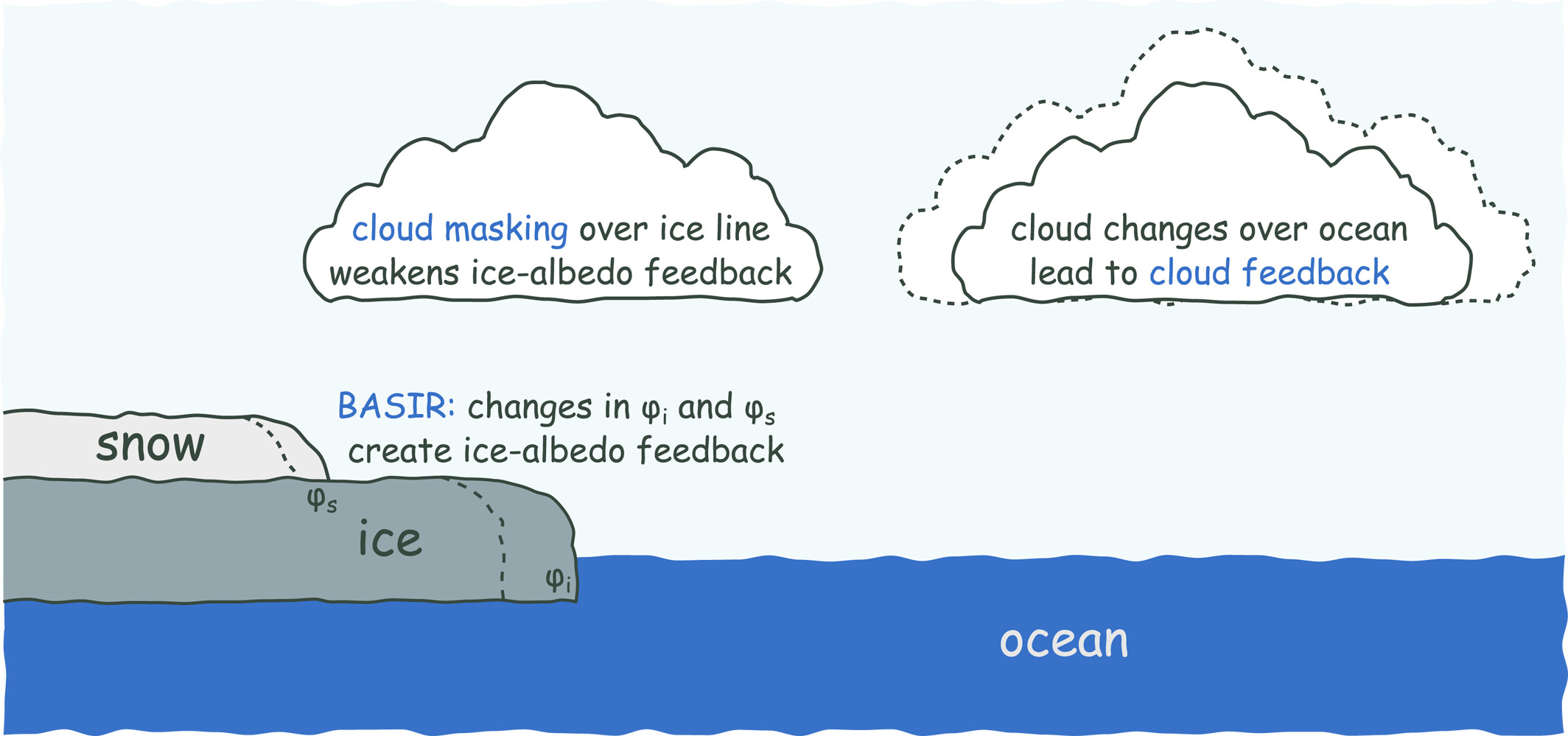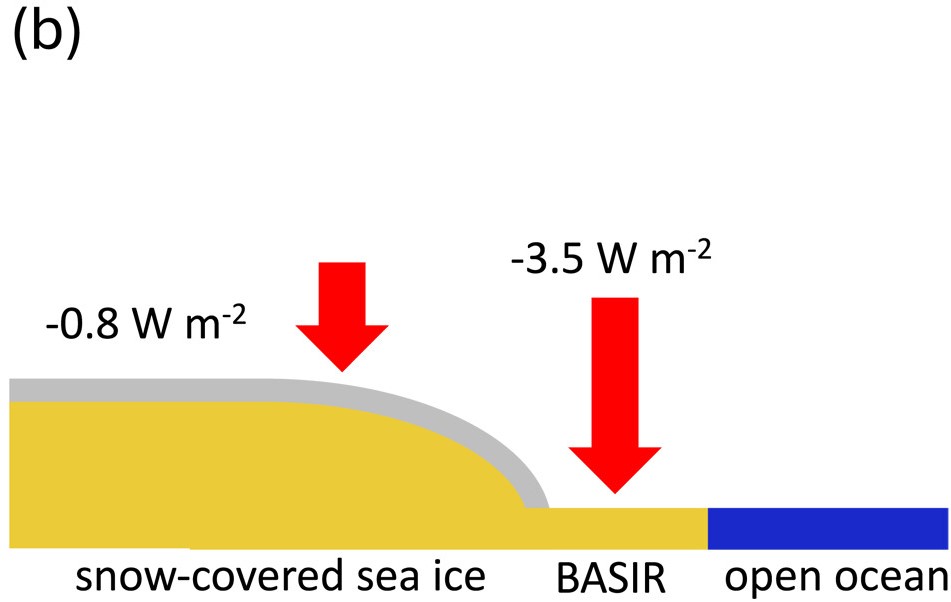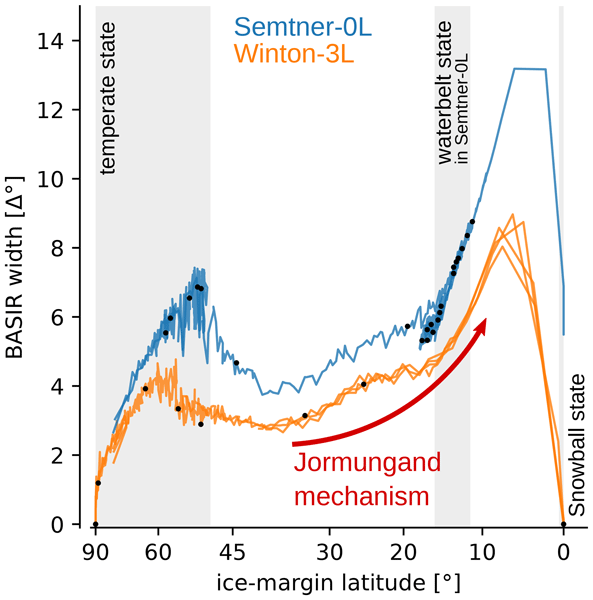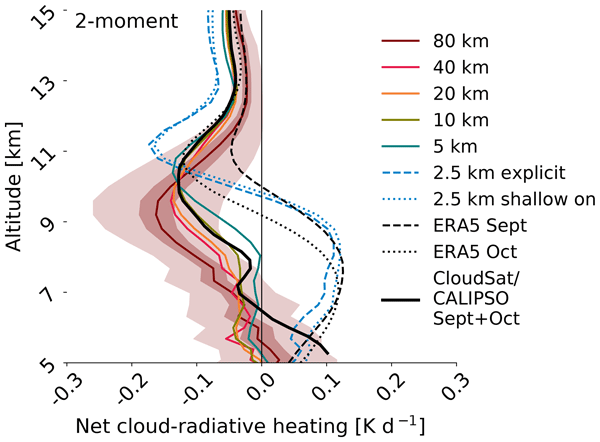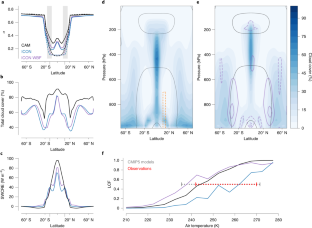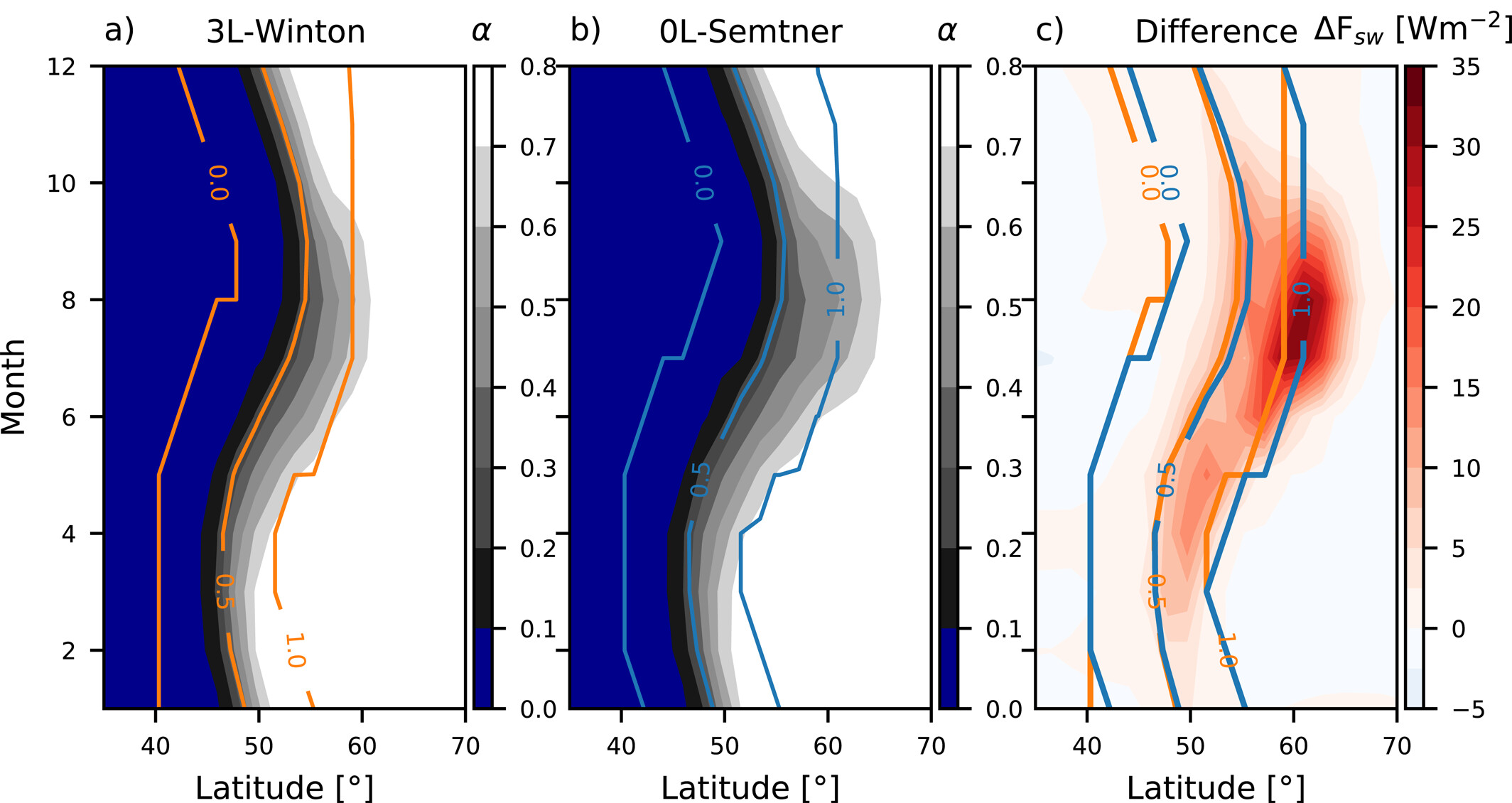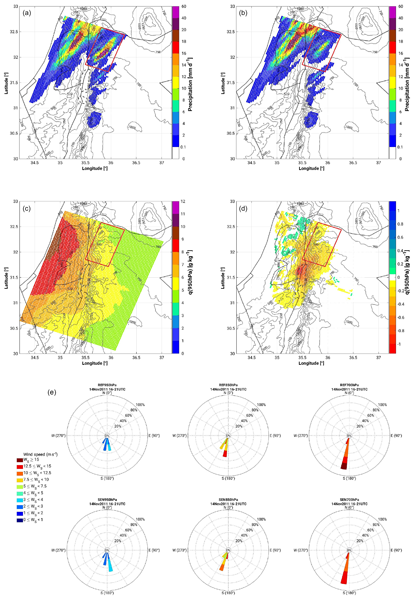Johannes Hörner
Baden-Württemberg State Institute for the Environment, Karlsruhe, Germany.

I am a data scientist working on air quality modeling. Previously, I completed my PhD at the Department of Meteorology and Geophysics at the Universtity of Vienna on the topic of Snowball Earth.
news
| Jun 1, 2025 | I am starting as a data scientist at the Baden-Württemberg State Institute for the Environment |
|---|---|
| May 5, 2025 | I sucessfully defended my PhD thesis: Clouds and bare sea ice as key factors in stabilizing waterbelt solutions for Snowball Earth |
| Feb 11, 2025 | preprint published, under review for JGR-A: Making sense of bifurcation diagrams: a new framework to understand the role of clouds and bare sea ice for waterbelt states |
| May 3, 2024 | talk at the Graz-Vienna Exoplanet Scientist Meeting IV |
| Apr 15, 2024 | meet me at my poster at the EGU General Assembly |
publications
teaching
| 2022-2023 | numerical methods (exercises) |
|---|---|
| 2023-2024 | climate system of the earth (exercises) |
| 2022 | regional climatology (seminar) |
